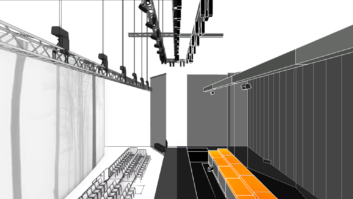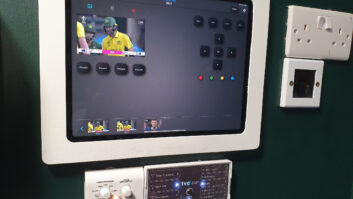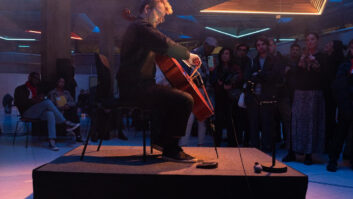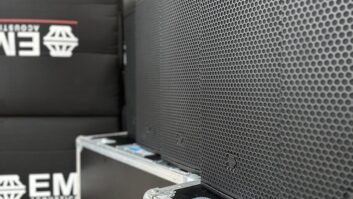
The largest collection of Audient iD14’s in one education facility is hard at work at Middlesbrough College, where 54 of the USB audio interfaces are a split across three music labs.
Technician and lecturer, Jamie Donnelly explained: “The iD14s offer seamless audio experience between both our PCs and iMacs. Also, 16 out of the 24 available channels, in four out of our five control rooms are Audient ASP800s, taking us up to 64 channels worth of Audient pre-amps.”
With each iD14 offering two channels of Audient’s classic console mic pres and Burr-Brown converter technology, Donnelly is impressed with the audio interfaces. “They’re utilised in every module of the course that requires audio,” he confirmed. “Students think they’re great; indeed there are a number of students who’ve purchased their own.
“A favourite feature of the iD14 has to be the big knob,” he added. “It’s nice to know there’s a sturdy knob for controlling the output as opposed to the finicky ones found on competitors’ units.” The same knob can also be switched into Audient’s ScrollControl mode, which turns it into a virtual scroll wheel, enabling students to adjust DAW hosts, plug-in parameters and more.
As for the ASP800s, Donnelly commented: “They just sound great. I compared one to a dual channel mic pre-amp costing in excess of £1500. Given the choice between the two, I’d take eight channels of Audient over the two channels offered in the expensive pre-amp. The Audient held up sound wise, and is easily more bang for buck.”
With places limited to around 30 seats per year, Middlesbrough College’s BSc (Hons) Music Technology degree course (accredited by Teesside University) is in the strong position of having more UCAS applicants than places available. Successful applicants are chosen on the basis to their performance at interview, at which they get the opportunity to visit the facilities.







